To excel in data science jobs in Malaysia, you need a blend of technical and non-technical skills. You should master programming, data analysis, statistics, machine learning, and data visualization. A successful data scientist also shows strong problem-solving, communication, business understanding, and teamwork. The demand for skilled data scientist professionals keeps rising as more companies rely on data-driven decisions. Assess your abilities and look for ways to improve. FineDataLink, FineReport, and FineBI from FanRuan help you build real-world expertise. These tools support hands-on learning, real-time analysis, and interactive dashboards. FineReport, used by over 30,000 enterprises, stands out for its collaboration features and robust data handling. Industry reports confirm these platforms equip you with practical skills needed for a modern data scientist.
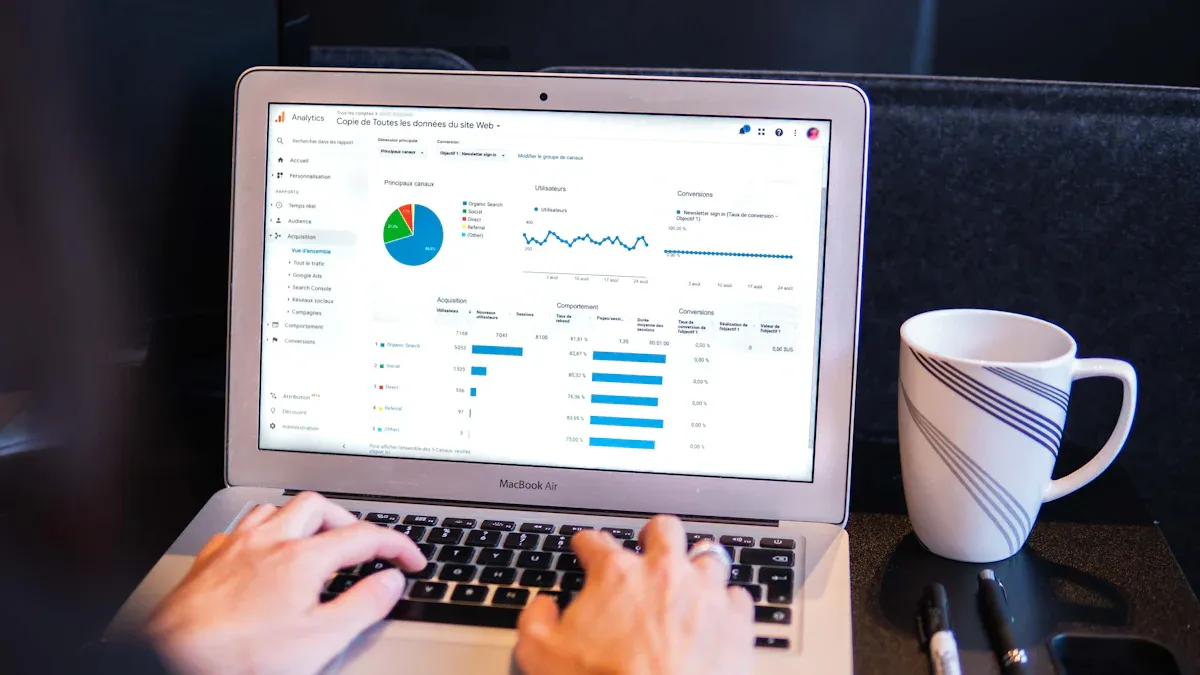
To succeed in data science jobs in Malaysia, you must develop a strong foundation in several technical areas. These skills form the backbone of your work as a data analyst or data scientist. Mastering them will help you extract valuable data insights, build predictive models, and communicate findings effectively.
Programming is essential for every data science jobs. You will use languages like Python, R, and SQL daily. Python stands out for its simplicity and versatility. You can leverage libraries such as NumPy, Pandas, and TensorFlow to handle data analysis, machine learning, and automation. Python’s beginner-friendly syntax makes it accessible, while its extensive ecosystem supports advanced analytics and deep learning.
SQL is another must-have skill. You will rely on SQL to acquire, clean, and manipulate large datasets. Industry reports highlight SQL’s speed and efficiency in data acquisition, feature engineering, and reporting. SQL also integrates seamlessly with other tools, making it indispensable for handling complex data sources. Many leading companies, including Google and Facebook, use R for statistical computing and visualization, but Python and SQL remain the most widely adopted in modern data science jobs in Malaysia.
FanRuan’s FineDataLink platform supports seamless integration with over 100 data sources, allowing you to practice SQL and Python-based ETL workflows in real business scenarios. FineBI also enables you to connect, process, and analyze data using these languages, making it easier to build your programming expertise.
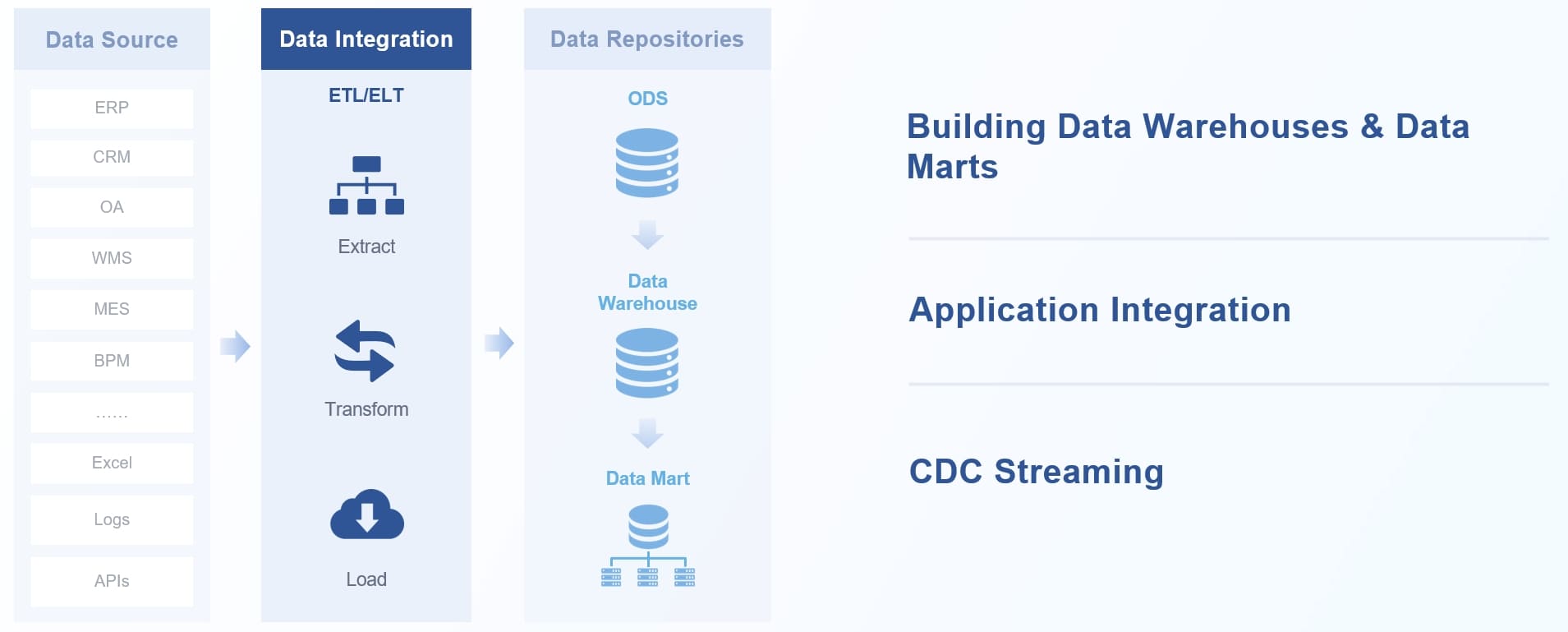
Data analysis is at the heart of every data analyst and data scientist role. You will explore, clean, and interpret data to uncover trends and patterns. Strong data analysis skills help you transform raw information into actionable recommendations. You will use Python and SQL to perform exploratory data analysis, join tables, filter records, and calculate metrics.
Real-world case studies in Malaysia show that companies use data analysis to understand customer behavior, optimize marketing, and improve business performance. For example, predictive modeling helped one organization avoid a $350 million contract loss by forecasting delivery risks. As a data analyst, you must master data wrangling, database management, and reporting accuracy. FineReport and FineBI provide intuitive interfaces for data analysis, letting you visualize and interpret results without extensive coding.
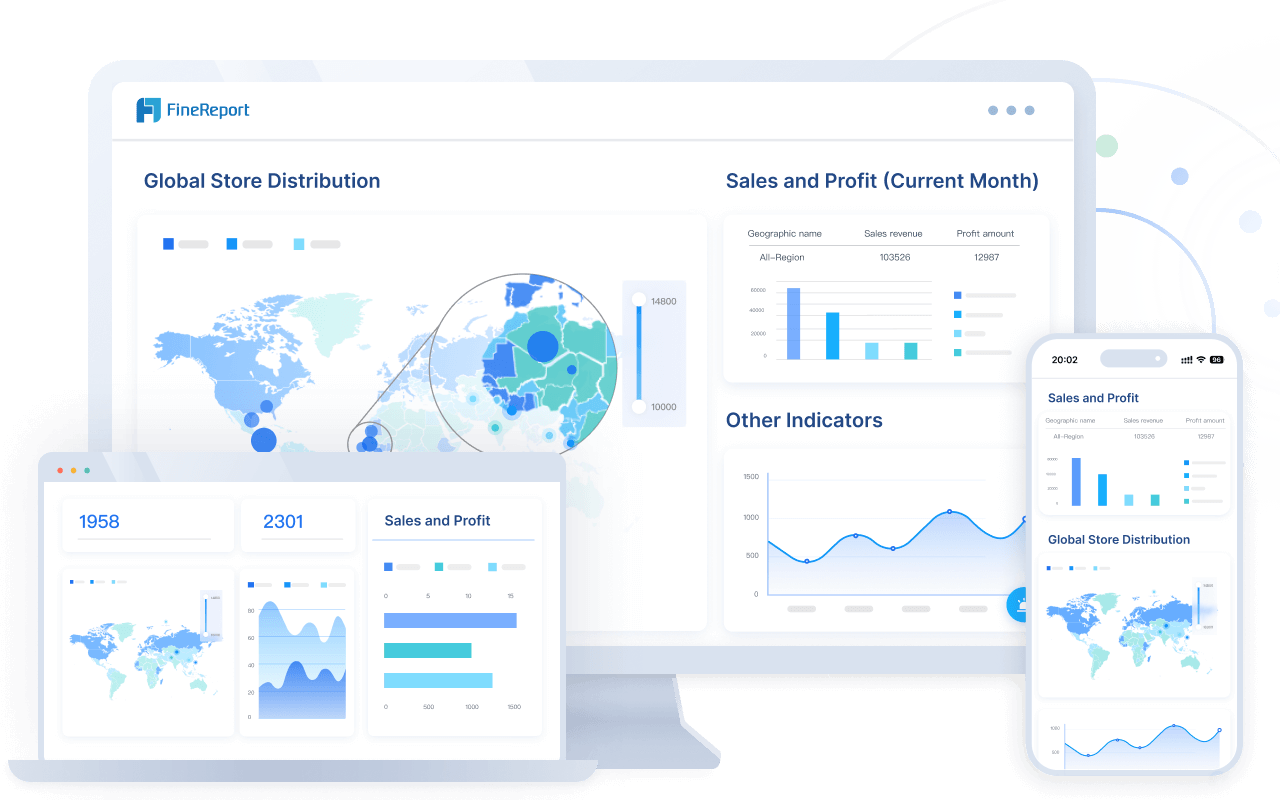
FineDataLink further enhances your data analysis capabilities by enabling real-time data synchronization and transformation. This ensures you always work with high-quality, up-to-date information.

Statistics and math are the building blocks of data analytics. You need a solid grasp of linear algebra, probability, calculus, and inferential statistics. These skills allow you to design experiments, test hypotheses, and build predictive models. Quantitative methods such as regression analysis, correlation, and hypothesis testing are critical for understanding relationships in your data.
Certification programs like Six Sigma and industry research in Malaysia emphasize the importance of statistical rigor. You will use statistics to make data-driven decisions, construct confidence intervals, and validate your findings in Malaysia. Machine learning algorithms often rely on these mathematical foundations to optimize performance and accuracy.
FineBI and FineReport support advanced statistical analysis, allowing you to apply these concepts directly to your projects. You can use built-in functions to perform regression, clustering, and time-series analysis, making your work as a data analyst more efficient and impactful.
Machine learning is a core skill for any data scientist. You will use supervised and unsupervised algorithms to discover patterns, make predictions, and automate decision-making. Python is the primary language for machine learning, thanks to libraries like scikit-learn and TensorFlow.
Many organizations use machine learning to personalize marketing, detect fraud, and forecast demand. For instance, companies like Sky UK and Trendyol segment millions of customers using machine learning, while Tesla and GE Healthcare rely on neural networks for autonomous driving and medical diagnostics. These examples show how machine learning drives innovation and business value in Malaysia.
FineBI empowers you to build and deploy machine learning models within your analytics workflows. You can experiment with clustering, classification, and forecasting, then visualize results in interactive dashboards. FineDataLink ensures your models always use the latest data, supporting real-time analytics and continuous improvement.
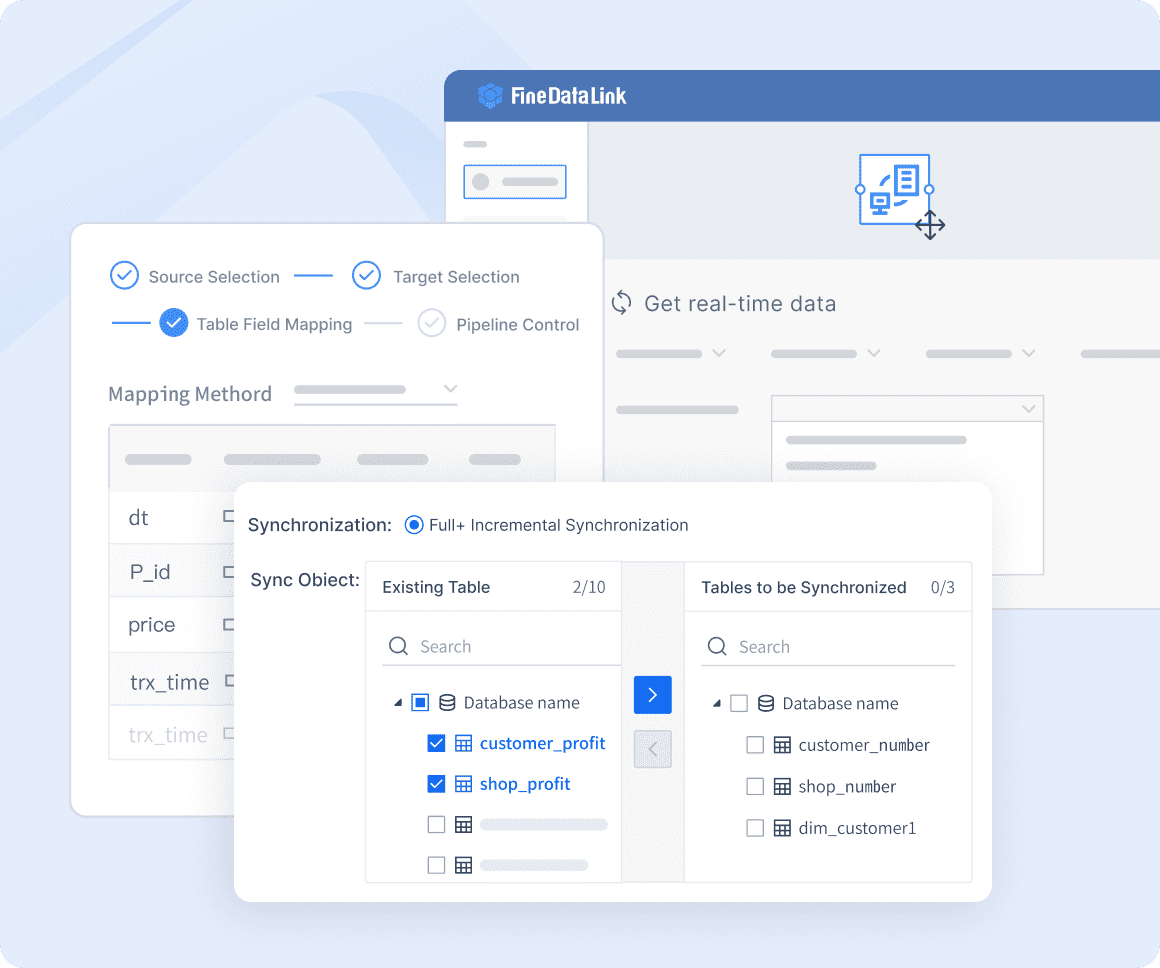
Data visualization skills are vital for communicating complex findings to stakeholders in Malaysia. You will use charts, dashboards, and interactive reports to present your analysis clearly. Visualization helps you uncover hidden insights, spot trends, and make faster decisions in Malaysia.
Market in Malaysia analyses show that data visualization leads to better business outcomes. Companies in Malaysia use real-time dashboards to optimize operations, adjust inventory, and align teams on key metrics. Visualization also fosters a collaborative, data-driven culture by making information accessible to everyone.
FanRuan’s FineReport and FineBI excel in data visualization. These tools offer over 60 chart types, interactive dashboards, and mobile access. Organizations using FineReport have reported a 25% reduction in errors, over 100 hours saved monthly, and a 20% increase in project delivery speed. FineBI’s self-service dashboards enable you to share data insights across teams, supporting strategic planning and continuous improvement.
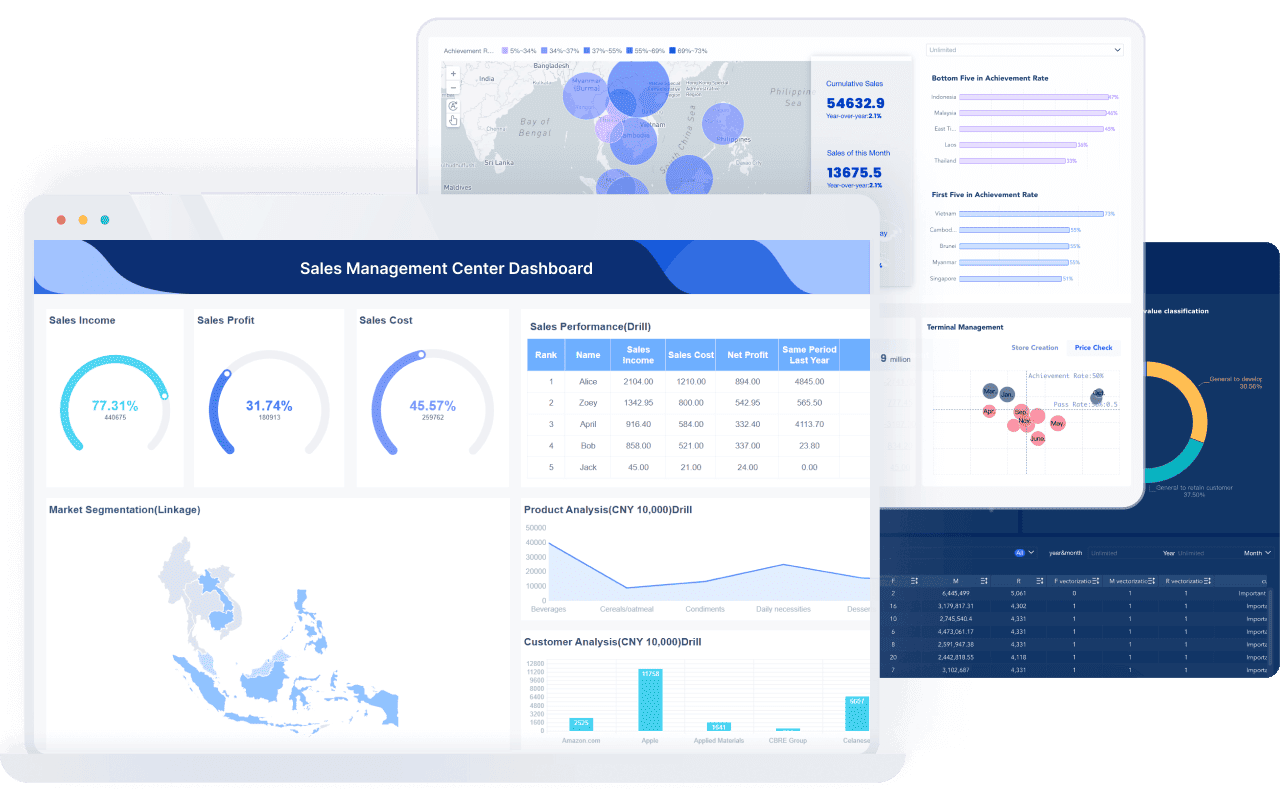
FanRuan has established a localized team in Malaysia to provide comprehensive project implementation and technical support services. This local presence ensures faster response times, better alignment with regional business needs, and smoother deployment of products like FineReport and FineBI. Clients in Malaysia benefit from personalized assistance throughout the project lifecycle, from initial setup to post-deployment optimization.
Tip: Mastering data visualization skills will set you apart as a data scientist. Use tools like FineReport and FineBI to create compelling, actionable reports that drive business success.
Success in data science goes beyond technical expertise. You need strong non-technical skills to turn data into real business value. These skills help you work with others, solve complex problems, and communicate your findings clearly.
You will face many challenges in data science projects in Malaysia. A strong analytical mindset helps you break down complex issues and find solutions. Problem-solving means looking at data from different angles and testing new ideas in Malaysia. You use your analytical mindset to spot patterns, identify root causes, and develop creative approaches. FanRuan’s FineReport and FineBI give you the tools to explore data visually, making it easier to test solutions and refine your approach.
You must explain your results to people who may not have a technical background. Good communication skills help you share insights, present findings, and build trust with your team. Research shows that teams with strong communication skills finish projects faster, reduce conflicts, and improve satisfaction. For example:
FineReport and FineBI support you with interactive dashboards and easy sharing features. These tools help you present data visually, making your message clear and engaging.
Tip: Use both formal and informal channels to keep everyone informed and involved.
You need to understand the business goals behind your data projects. This skill helps you ask the right questions and focus your analysis on what matters most. Business understanding means working with stakeholders in Malaysia to define problems and set clear objectives. When you align your work with business needs in Malaysia, your analysis has a bigger impact. You also choose the right data sources and methods for each project. This step sets the foundation for the entire data science process.
You rarely work alone in data science. Teamwork lets you combine different skills and viewpoints to solve tough problems. Case studies from companies like Google and IBM show that teamwork leads to better solutions, more innovation, and higher efficiency. Teams that share ideas and divide tasks based on expertise finish projects faster and with better results. FineReport and FineBI make it easy to collaborate by letting you share dashboards, reports, and insights in real time. This boosts engagement and helps everyone stay on track.
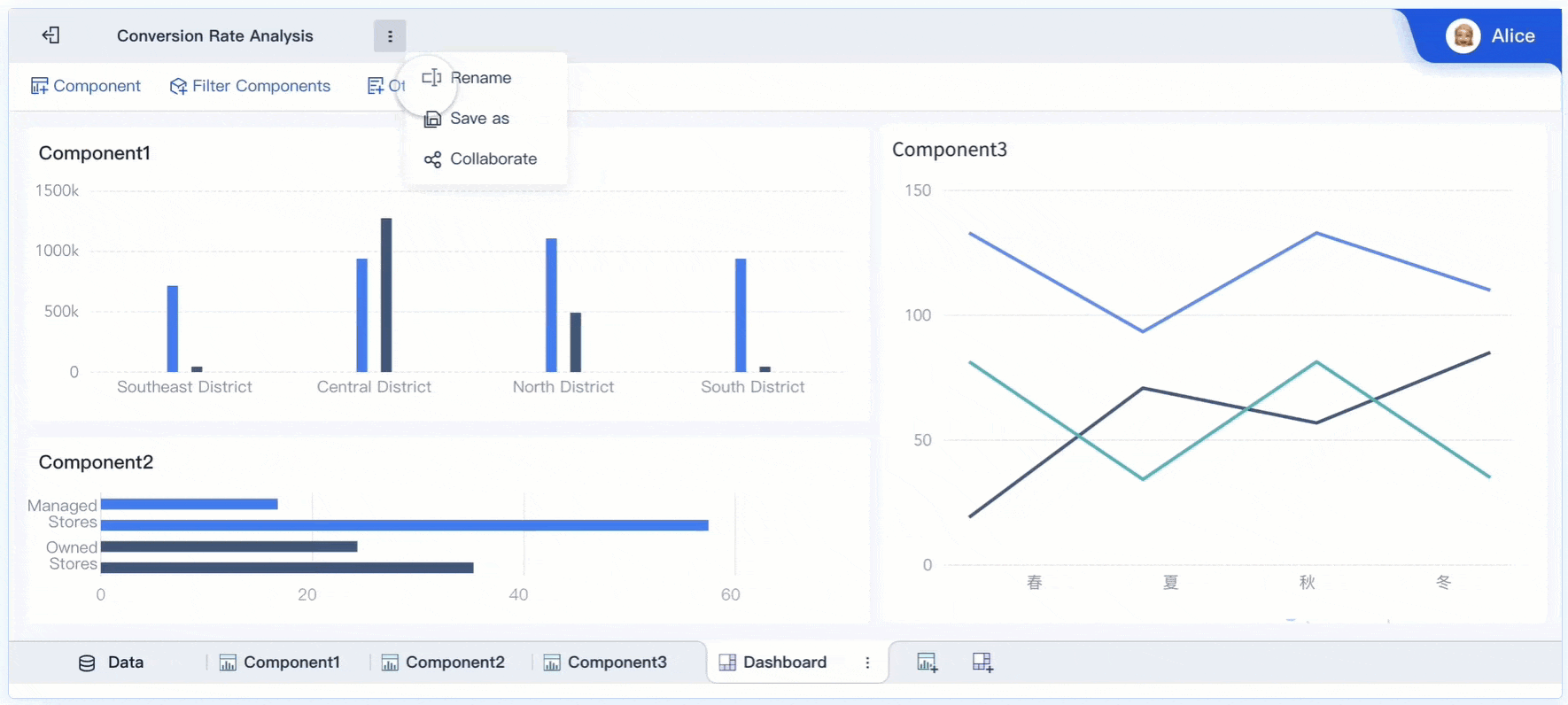
Remember: Great teamwork depends on trust, open communication, and a shared goal.
You now face a world where data grows at an incredible pace. Companies generate massive amounts of information from social media, IoT devices, and business systems. To manage and analyze this data, you need to master big data technologies and cloud computing. These skills help you process large datasets, build scalable solutions, and deliver real-time insights.
| Trend/Statistic | Description |
|---|---|
| Cloud adoption by enterprises | 94% of enterprises already use cloud services; nearly half plan to migrate more workloads soon. |
| Cloud platforms | AWS, Microsoft Azure, Google Cloud optimize data analytics workflows and decision-making. |
| Data fabric architecture | Provides unified data management across environments; predicted to quadruple data utilization efficiency by 2024. |
| Cloud-based analytics | Enables scalable data processing without expensive on-premises infrastructure. |
Big data and analytics drive the future of data science. Cloud platforms like AWS, Azure, and Google Cloud offer flexible storage and computing power. You can process huge datasets, deploy machine learning models, and collaborate in real time in Malaysia. By 2025, experts in Malaysia expect over 27 billion IoT devices worldwide, which will create even more data to analyze. Cloud-based data science will become the norm because it saves costs and increases agility.
FineDataLink helps you integrate big data from many sources. You can synchronize data in real time, automate ETL processes, and support advanced analytics. This platform gives you the tools to handle the speed and scale of modern data science.
Note: Real-time analytics powered by cloud and big data technologies now shape industries like healthcare, finance, and insurance. You gain the ability to make faster, smarter decisions.
Technical skills alone do not guarantee success in data science. You also need deep understanding of the industry you work in. Domain knowledge lets you ask better questions, choose the right data, and create solutions that fit real business needs.
You should identify key data sources in your field, clean and validate them, and keep learning about industry trends. This approach ensures your data science projects deliver real value and drive innovation.
You can build your skills as a data analyst by using a wide range of learning resources. Many top universities offer online courses on platforms like Coursera and edX. For example, the "Machine Learning" course by Andrew Ng gives you a strong foundation. You can also join micro-courses and real-world challenges on Kaggle to practice Python, machine learning, and data manipulation. Professional certificates from IBM, Google, and AWS help you validate your expertise. You should read blogs, attend webinars, and join conferences to stay current. Community forums and local meetups connect you with mentors and peers. Some people choose graduate degrees or bootcamps for deeper knowledge. Hackathons and large dataset challenges help you develop real-world problem-solving skills.
A strong portfolio sets you apart as a data analyst. You should create projects that show your ability to clean data, build models, and visualize results. Use real-world datasets from sources like Kaggle or public data repositories. Try to solve business problems that matter to your target industry. FineReport and FineBI let you build interactive dashboards and reports, which you can include in your portfolio. Employers want to see how you approach projects from start to finish. If you want an entry-level data analyst job in Malaysia, a portfolio with diverse projects will help you stand out. Share your work on GitHub or a personal website to reach more recruiters.
Tip: Focus on quality over quantity. One well-documented project can show more skill than many unfinished ones.
Certifications help you prove your skills to employers. Many programs, such as the IBM Data Science Professional Certificate, offer structured learning and hands-on practice. Success rates for these programs are high. For example, the Institute of Data reports a 93% job outcome success rate within 180 days for active job seekers in Malaysia. Graduates from the Springboard Data Science Career Track report average salary increases of $25,000. The University of Michigan Applied Data Science certificate leads to pay increases or new careers for 13% of learners.
| Certification Program | Success Metric | Outcome Description |
|---|---|---|
| Institute of Data | 93% job outcome success rate | Within 180 days of graduation for active job seekers in Malaysia, supported by training and coaching. |
| Springboard Data Science Career Track | 3% job guarantee refunds | High job placement success rate and average salary increases of $25,000+. |
| University of Michigan Applied Data Science | 13% pay increase or promotion; 13% new career | Career advancement or changes after earning the certificate. |
You can also pursue the FanRuan Global Certification Examination. This program validates your skills in FineReport and FineBI, making you more competitive in the job market in Malaysia. Certified data analysts often receive better job offers and higher salaries in Malfaysia. You gain access to exclusive resources and join a global talent pool.
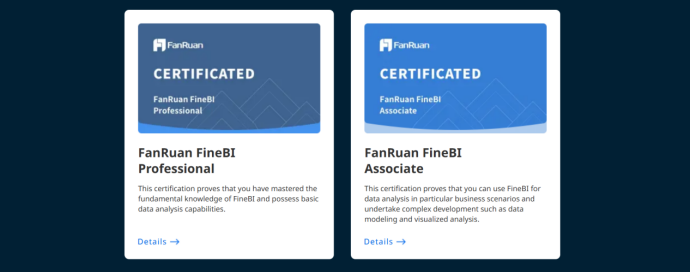
You need both technical and non-technical skills to succeed as a data scientist. Master programming, statistics, and machine learning. Build strong communication skills and learn to work well with others.
Continuous learning and hands-on experience help you stay ahead. Use FineDataLink, FineReport, and FineBI to practice real-world analytics. Consider certification to stand out. Start building your skills today and shape your future as a data scientist.
Click the banner below to try FineReport, FineBI and FineDataLink for free and empower your enterprise to transform data into productivity!
Master of Data Science Programs Cost and Flexibility
What is the Average Data Scientist Salary Malaysia

The Author
Lewis
Senior Data Analyst at FanRuan
Related Articles
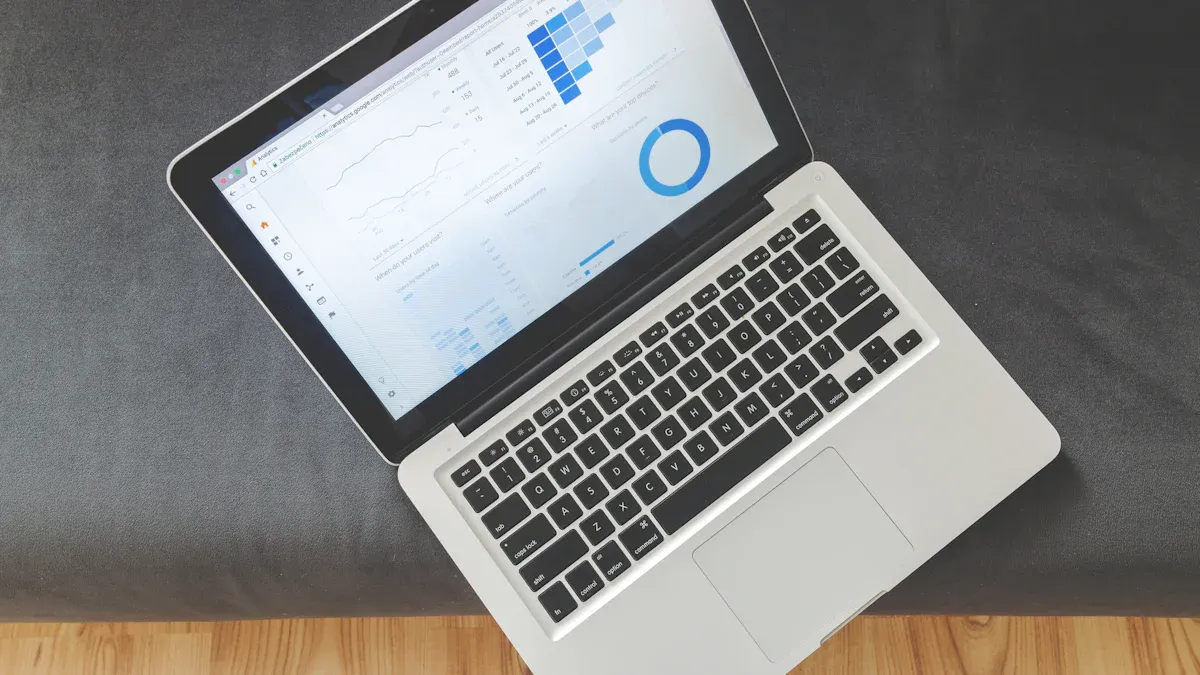
Best Self-Service Tools for Analytics You Should Know
See which self-service tools for analytics let business users access data, build dashboards, and make decisions faster—no IT help needed.
Lewis
Dec 29, 2025

Understanding Predictive Analytics Services in 2026
Predictive analytics services use data and AI to forecast trends, helping businesses make informed decisions, reduce risks, and improve efficiency in 2026.
Lewis
Dec 30, 2025
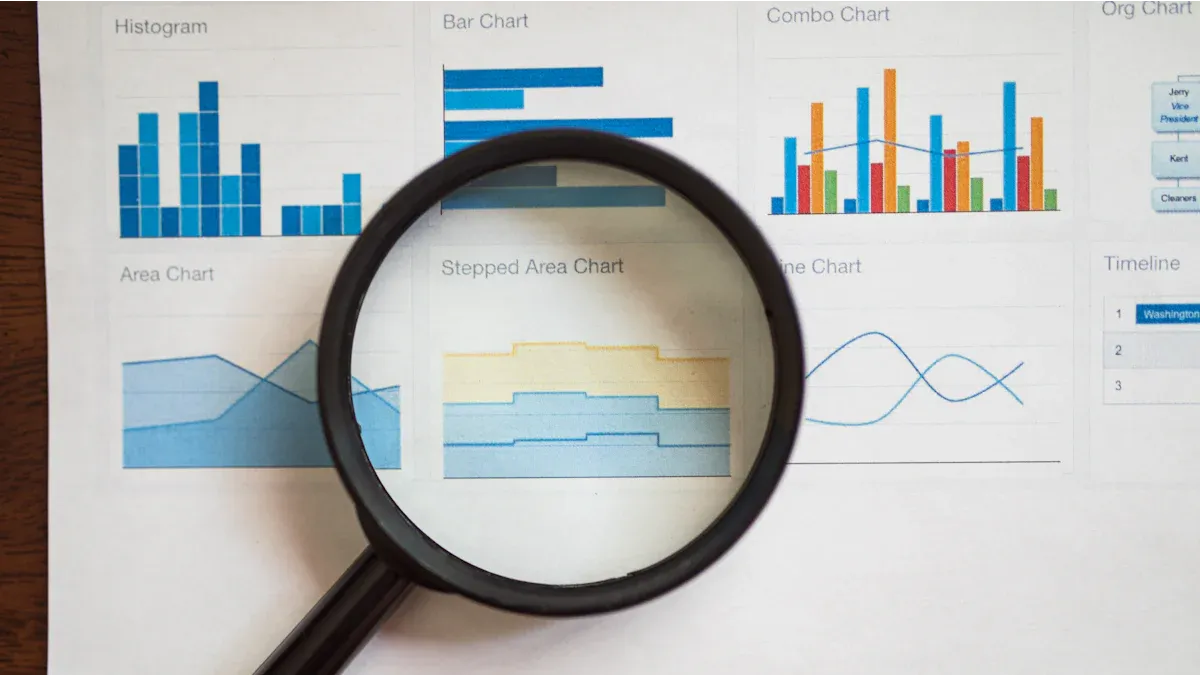
What is Distribution Analysis in Mathematics and Statistics
Distribution analysis in mathematics and statistics examines how data values spread, helping identify patterns and predict outcomes accurately.
Lewis
Dec 28, 2025